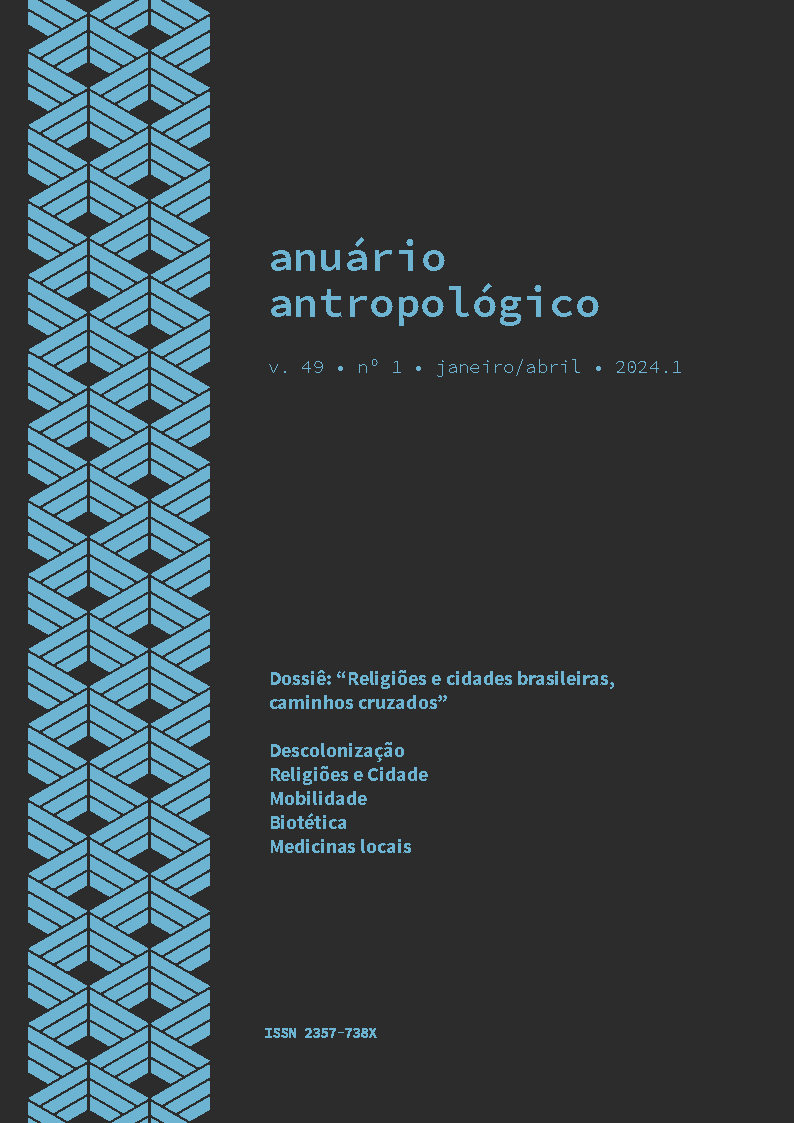Commentary about “On Decolonization and its Correlates”, by Wilson Trajano Filho
DOI:
https://doi.org/10.4000/11nfuPalabras clave:
PPGAS 50 Years, Trajano, DecolonizationResumen
Writing a critique of the concept of decolonization and its uses across history is not an easy task, and yet, it feels almost overdue considering the trendiness of the topic in academic circles and the number of publications it generates. Decolonization has become a ‘buzz’ word that thrives in the contradictions of neoliberal academia – mainly as an avenue to mitigate power relations and relieve some of the ‘settler guilt’ associated with the creation and the management of Western universities (Tuck and Yang 2012). It has become obvious that the decolonization radical rhetoric has an unfortunate tendency to serve the interest of universities, often situated in the Global North, and that discourses are rarely followed up by concrete political actions to shift the cards in favor of indigenous groups and to redistribute (academic, wealth, territorial) assets accordingly. This type of ‘conservative nonconformism’, the author argues, is one of the pitfalls of decolonization (and decoloniality) as framed mainly as an epistemological issue. This new environment, in my view, also produces an ethically disturbing race as to which institution will prove ‘more decolonial’ or set ‘more proactive decolonial policies’ than the other.
Descargas
Citas
Deridder, Marie Anaïs Ménard and Elieth Eyebiyi. 2022. “Presentation. Hierarchies in knowledge production and power relations in academic postcolonial settings: investigating decolonial and feminist praxis”, Recherches Sociologiques et Anthropologiques 53, no.2: 35–66.
Dörr, Luisa. 2022. “ImillaSkate: an indigenous Bolivian skateboard collective – photo essay”. The Guardian, February 8, 2022. https://www.theguardian.com/artanddesign/2022/feb/08/ imillaskate-an-indigenous-bolivian-skateboard-collective-photo-essay
Liadi, Olusegun F., and Ayokunle O. Omobowale. 2011. “Music multilingualism and hip-hop consumption among youths in Nigeria”. International Journal of Sociology and Anthropology 3, no. 12: 469-77.
Mark, Peter. 1999. “The Evolution of ‘Portuguese’ Identity: Luso-Africans on the Upper Guinea Coast from the Sixteenth to the Early Nineteenth Century”. The Journal of African History 40, no. 2: 173-191. DOI : 10.1017/S0021853799007422
Ménard, Anaïs. 2023. Integrating Strangers. Sherbro Identity and the Politics of Reciprocity along the Sierra Leonean Coast. London; New York: Berghahn Books. DOI : 10.1515/9781805390985
Mignolo, Walter. 2011.The Darker Side of Western Modernity: Global Futures, Decolonial Options. Durham: Duke University Press. DOI : 10.2307/j.ctv125jqbw
Ndlovu-Gatsheni, Sabelo J. 2018. Epistemic Freedom in Africa: Deprovincialization and Decolonization. London: Routledge.
Ojebuyi, Babatunde R., and Bimbo L. Fafowora. 2021. “Contesting Cultural Imperialism: Hybridisation and Re-enactment of Indigenous Cultural Values in Nigerian Hip-Hop Music”. Muzik 18, n. 1: 59-81.
Smith, Michael N., and Claire-Ann Lester. 2023. “From “dependency’ to ‘decoloniality’? The enduring relevance of materialist political economy and the problems of a ‘decolonial’ alternative”. Social Dynamics 49, no. 2: 196-219. DOI : 10.1080/02533952.2023.2220588
Táíwò, Olúfẹ́mi. 2022. Against Decolonisation. Taking African Agency Seriously. London: C. Hurst & Co. Ltd.
Tuck Eve, and K. Wayne Yang. 2012. “Decolonization is not a metaphor”. Decolonization: Indigeneity, Education & Society 1, no. 1: 1-40.
Descargas
Publicado
Cómo citar
Número
Sección
Licencia
Derechos de autor 2024 Anaïs Ménard

Esta obra está bajo una licencia internacional Creative Commons Atribución 4.0.
https://creativecommons.org/licenses/by/4.0/legalcode.en
Creative Commons - Atribución- 4.0 Internacional - CC BY 4.0
https://creativecommons.org/licenses/by/4.0/legalcode.en



